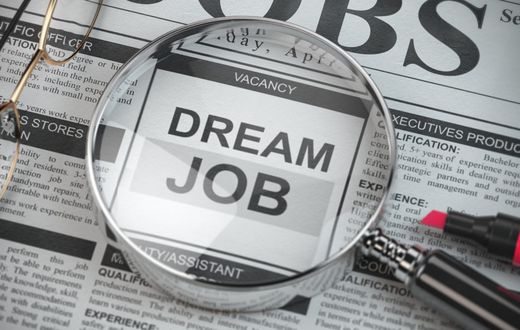Businesses Adopt Price Adjustment Tactics as Inflation Bites Harder

With the general increase in the cost of doing business amidst the sharp depreciation in the value of the naira, high energy costs, and other negative indices, providers of goods and services have begun to adjust their prices as reflected in virtually all the sectors of the economy, reports Festus Akanbi
One headache for the current administration is the rising inflation which underscores the current level of hardship in the country. The inflation rate in Nigeria increased to 26.72 per cent in September from 25.80 per cent in August of 2023.
It is a trend that seems to have defied various efforts put in place by successive administrations. For instance, the inflation rate in Nigeria averaged 13.14 per cent from 1996 until 2023, reaching an all-time high of 47.56 per cent in January 1996 and a record low of -2.49 per cent in January 2000.
Rising Cost of Business
Today, the inflation burden is weighing heavily on businesses and consumers in Nigeria, as prices of products and services continue to rise across the country.
On November 1, Nigeria’s leading pay-TV service provider, MultiChoice Nigeria, in a text message to customers, announced a price adjustment on its subscription packages on DStv and GOtv. The new price regime will see Premium Package subscribers on DStv pay N29,500, a 20.4% increase from the previous price of N24,500. Customers on the Compact Plus package will now pay N19,800, an increase of 19.2%. DStv Compact package price also rose by 19% to N12,500 while DStv Confam Yanga and Padi got new rates of N7,400, N4,200, and N2,950 respectively.
Also under the new arrangement, customers on the new GOtv Supa + package will start paying N12,500, while prices for GOtv Supa, Max, Jolli, Jinja, and Smallie packages will increase to N7,600, N5,700, N3,950, N2,700 and N1,300 in that order. As contained in the message to customers, the new price will take effect from November 6.
MultiChoice’s price adjustment came two months after another pay-TV operator, Startimes, announced its price adjustment. Both companies have had to adjust their prices twice in 2023.
While MultiChoice is yet to give an official reason for the new price adjustment, Startimes said the move was necessary, as the old rates were no longer feasible to remain in business.
“We are not increasing prices to make extra profits, but rather to cover operational costs and continue to provide affordable and accessible digital TV to millions of Nigerians,” the company said.
The move by both companies is typical of what brands and service providers have been doing in recent months to stay afloat in Nigeria, while brands that find the situation unbearable, have closed shop.
In August, GlaxoSmithKline Consumer Nigeria Plc. announced that it had stopped commercialisation of its prescription medicines and vaccines in Nigeria, and would transition to a third-party direct distribution model in the country. The company didn’t give a reason for the decision, but this is believed to be connected to foreign exchange availability, cost of living crisis, rising business costs, and a dwindling consumer base.
Upward Trend in Inflation Rate
The September Consumer Price Index (CPI) showed that “Nigeria’s inflation rate rose to 26.72% from 25.80% in August.” This, according to CPI, was down to the harsh economic realities occasioned by the removal of petrol subsidy by the federal government in May. The inflation rate was 21.82% in January 2023.
The increasing inflation figures, coupled with the steady decline of the naira against the dollar in the exchange market, are evident in the steady rise in prices of food and other commodities across the country.
Figures from the selected food price watch, by the National Bureau of Statistics, in September 2023, showed that the average price of 1kg of beef boneless stood at N2,816.91.
“This indicates a 28.08% rise in price on a year-on-year basis from N2,199.37 recorded in September 2022 and a 0.62% rise in price on a month-on-month basis from N2,799.51 in August 2023. The average price of 1kg of Rice increased by 60.59% on a year-on-year basis from N471.42 in September 2022 to N757.06 in September 2023. On a month-on-month basis, the average price of this item increased by 2.48% from N738.74 in August 2023,” the report said.
A market price scan also revealed that the price surge cuts across all sectors of the economy. Malaria drugs that sold for N1,000 in October 2022, now sell for over N3,000. A bottle of beer now sells for N500 in most parts of Lagos State, a 43% increase from the N350 price tag in May. One kilogramme of gas now sells for N945 at filling stations, while retail outlets sell at over N1,150 depending on the location.
Companies on Survival Moves
A social commentator, Samuel Olawale, who has been observing the inflation market trend in the country, said companies have no choice but to adjust for survival. “As customers, we feel the brunt of inflation but the mistake most of us make is that we assume the manufacturers and service providers are immune to it. The cost of diesel is off the roof. A litre currently sells for N1,200. This is forcing manufacturers to reduce production hours. What this does is, it reduces available products and the prices of available ones rise sharply.
“The failure to keep the naira devaluation in check is the main problem our economy faces right now. The naira keeps falling to the dollar, and we know what this portends for our import-dependent economy. This is why companies like MultiChoice and Startimes will have no option but to keep reviewing their prices if they want to sustain their business in the country. These companies pay for all foreign content in dollars and make it available to us in naira. Yes, they acquire some of their content locally, but won’t be surprised if I hear that some local content producers are already requesting to be paid in dollars as well because it’s no longer wise to do business in naira, due to its volatility,” he said.
Going by the events of recent months and the implication of policies on the Nigerian economy, it is expected that more businesses will be forced to up the prices of products and services to reflect their operating costs.
The economic hardship did not spare Nigerians who found succour in alcoholic beverages with the decision of alcoholic manufacturers to raise the prices of some of their products as far back as August this year.
For instance, Nigerian Breweries announced a price increase in some of its products effective August 10, 2023. It said the price hike became necessary due to the continued rise in input costs and the necessity to mitigate its impact.













